
Objectives
What is leadership in ethology?
How does it relate to roles within the group?
How does it relate to dominance?
How does this apply to dog trainers?
This lecture uses these two publications as references (combines observations from 1986-1999):
What is leadership as defined in ethology?
Mech (1970:73) defined leadership among Wolves as “… the behavior of one Wolf that obviously controls, governs, or directs the behavior of several others” such as when Wolves decide on direction of travel, when to rest or travel, and whether to chase prey. Peterson (1977) and Haber (1977) adopted similar definitions.
How does it relate to roles within the group?
This info is taken from Leadership in Wolf, Canis lupus, Packs
Awakening and initiating foraging
Traveling
It is not necessarily about being "first":
In simple groups, the breeding pair always leads:
Hunting
It is not about being or eating first:
Provisioning the Pack
Protection
Pure threat (not competition)
Territorial aggression (intolerance/competitors) - refer to Schenke1 1967)
How does leadership correlate with dominance?
Observed and recorded over 3 winters
Dominance correlates with leadership. Here is the abstract from Leadership behavior in relation to dominance and
reproductive status in gray wolves, Canis lupus
Leadership parameters for this study?
Nonfrontal Leadership
Very significant!
Always the dominant pack members, except for one wolf prior to dispersing from the pack.
Conclusion about dominance and leadership correlation
Suggestion-makers vs Deciders
How does information about published leadership/dominance observation help professional dog trainers?
- summary
- dominance is control of limited resources
- Leadership is making decisions for the group
- the same reasons why this makes sense to breeding a pair of wolves for a functioning family is the same for the domesticated versions
- Go with mother nature
- Be the decision-maker (leader)
- suggestions are OK but keep the balance and clarity obvious with your daily planning and interaction
- Be in control of limited resources (dominant)
- This will reduce conflict in a trickle-down effect
- Leadership/dominance sets the stage for a more natural way to guide dogs and train obedience with less conflict/opposition
- Be the decision-maker (leader)
- A reminder of what it is not important
- being "first" out doors
- eating "first"
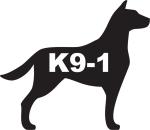



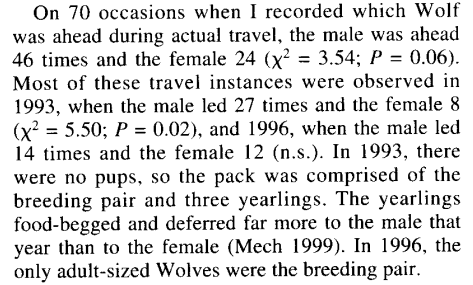
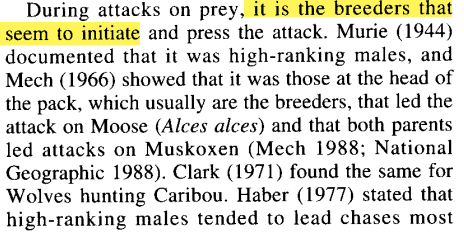
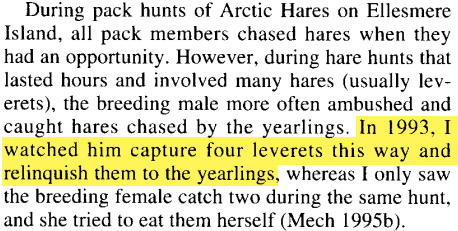
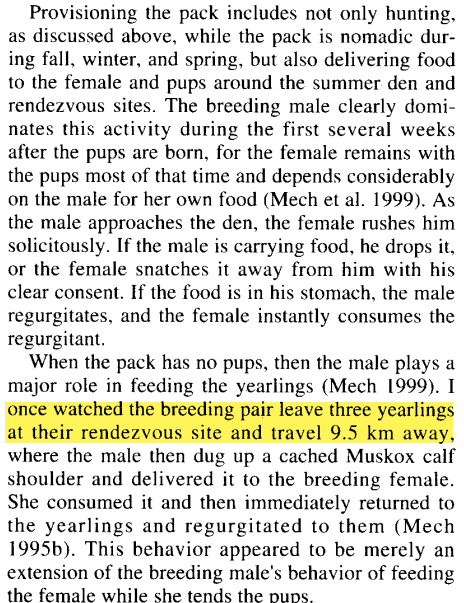


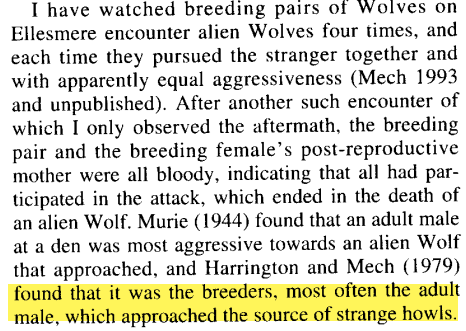


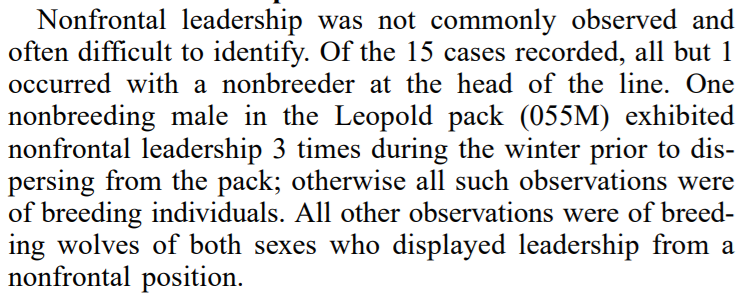
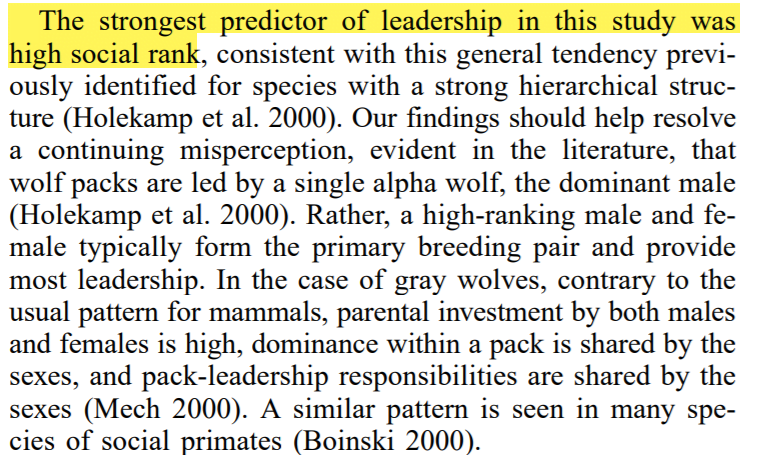
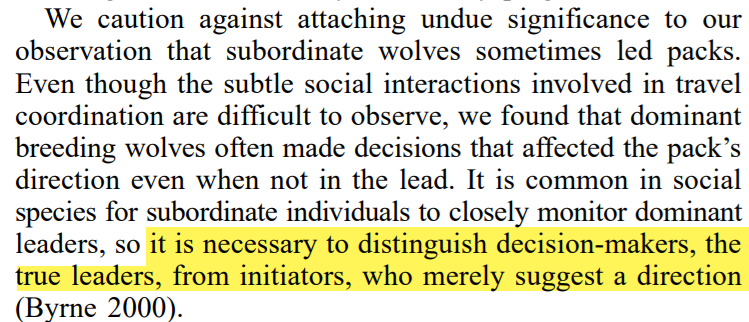
Thank you for the clarity. I’ve apparently got several misconceptions to unlearn …
You need to login in order to like this post: click here